Understanding Sleep’s Impact on Recovery
Addiction recovery is a complex process that requires attention to multiple facets of health, with sleep hygiene emerging as a critical, yet often overlooked component. Good sleep is integral not only to physical rehabilitation but also emotional and cognitive recovery. With addiction frequently disrupting sleep, establishing healthy sleep routines can considerably enhance one’s journey to sobriety.
The Crucial Role of Sleep Hygiene in Overcoming Addiction
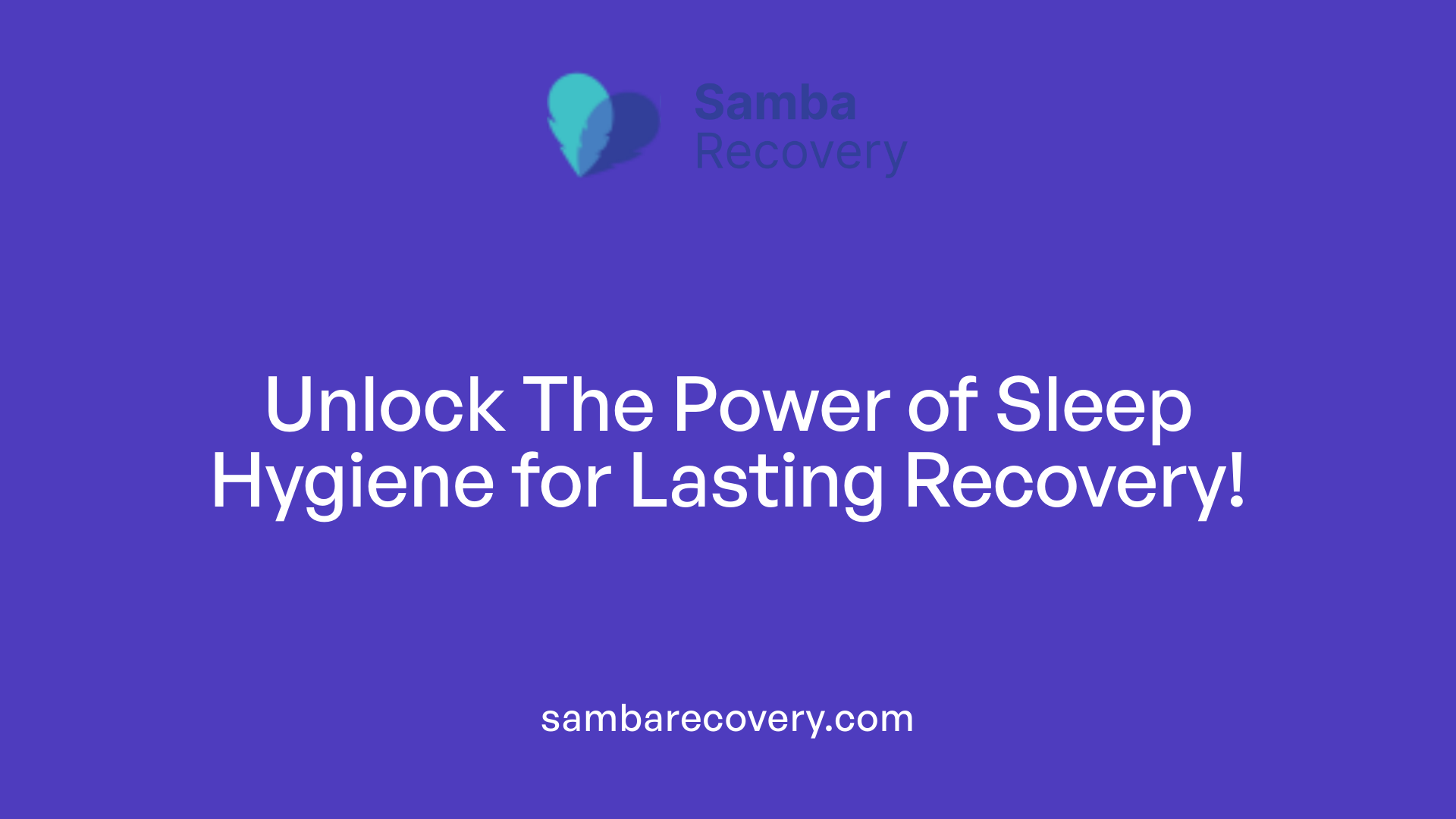
What is the role of sleep hygiene in addiction recovery?
Sleep hygiene plays a crucial role in addiction recovery by promoting better sleep quality, which in turn supports overall mental health and stability. Implementing healthy sleep habits, such as maintaining a consistent sleep schedule and creating a comfortable sleeping environment, helps individuals improve their sleep over time.
Proper sleep is vital for cognitive function, emotional regulation, and physical health, all of which are critical for those in recovery. For instance, adopting a routine can signal to the brain when it’s time to unwind, facilitating smoother transitions into sleep.
How do healthy sleep habits support recovery?
Avoiding substances like alcohol, nicotine, and sleeping pills, especially close to bedtime, is vital since these can negatively impact sleep quality. Research indicates that up to 80% of individuals in early recovery report sleep disturbances, which can exacerbate cravings and increase the risk of relapse.
Practicing good sleep hygiene, which includes actions such as:
- Establishing a bedtime routine: Activities like reading or meditating can promote relaxation.
- Creating a conducive sleep environment: A dark, quiet, and cool room enhances sleep quality.
- Limiting screen time before bed: Reducing exposure to blue light supports better sleep.
By prioritizing sleep hygiene, individuals can manage withdrawal symptoms more effectively and mitigate the risks associated with sleep deprivation, such as impaired judgment and mood disturbances.
The Impact of Sleep Disturbances on Recovery and Behavior
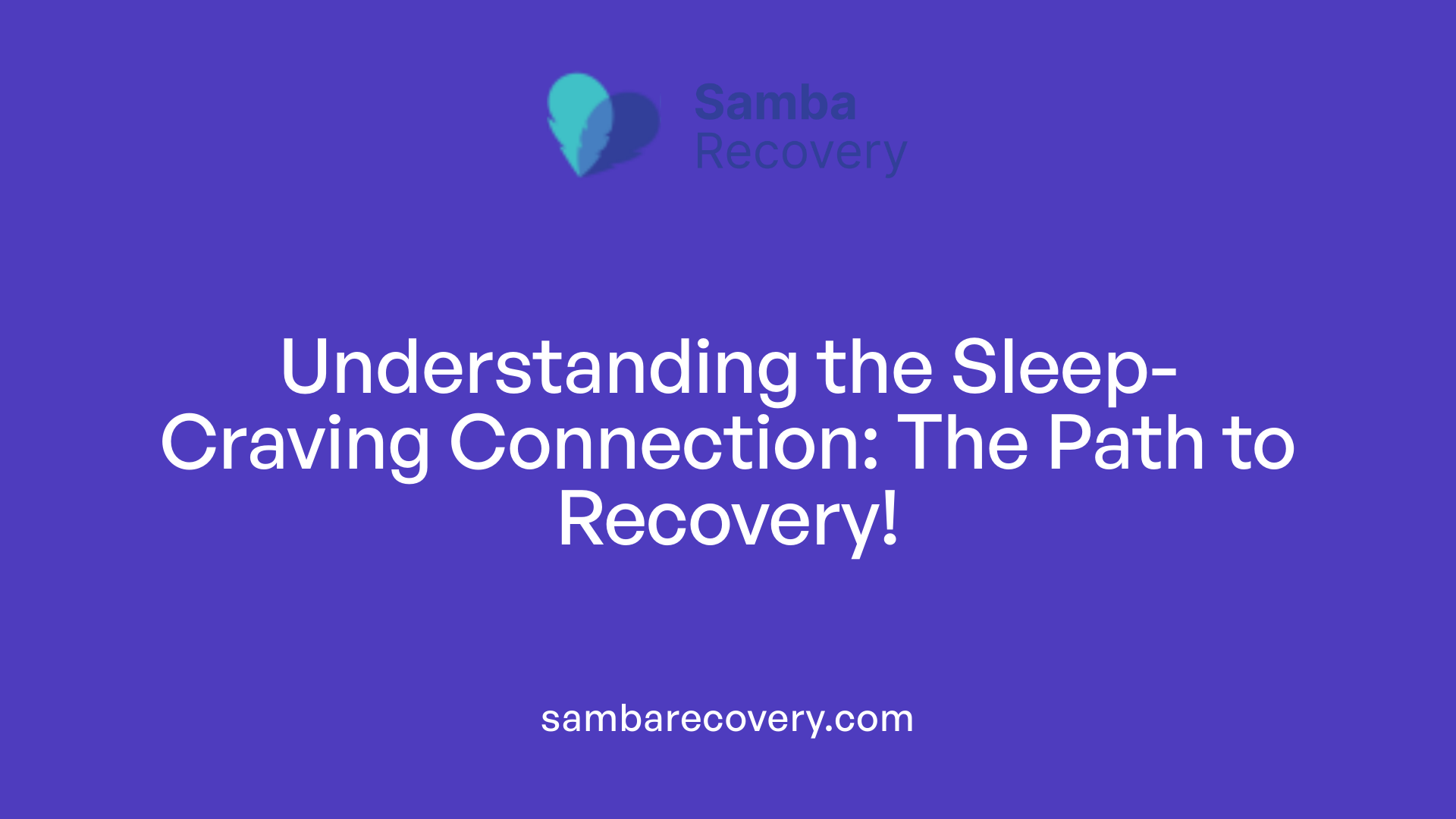
How do sleep disturbances impact addiction recovery and behaviors?
Sleep disturbances significantly impact addiction recovery and behaviors in several ways. They exacerbate cravings and increase the risk of relapse by impairing cognitive functions like decision-making and impulse control. Individuals suffering from insomnia or disrupted sleep patterns often face heightened anxiety and emotional instability, complicating their recovery process.
Chronic substance use is frequently linked to sleep disorders. Research indicates that up to 80% of individuals in early recovery report sleep disturbances, revealing a significant connection between addiction and sleep quality. Withdrawal symptoms also contribute to sleep dysfunction, with many individuals experiencing insomnia even after cessation of substance use.
Additionally, those grappling with substance use disorders (SUD) are notably more likely to experience sleep disorders like sleep apnea and restless leg syndrome. These conditions can lead to chronic fatigue and irritability, further impeding recovery efforts.
Relationship between sleep disturbances and relapse
Addressing sleep disturbances is crucial in recovery. Many studies suggest that poor sleep quality correlates with an increased risk of relapse, underscoring the need for targeted sleep interventions. Effective treatments, including cognitive-behavioral therapy for insomnia (CBT-I), emerge as vital components in recovery programs.
Individuals with a consistent sleep schedule and healthy sleep environment report better recovery outcomes. For instance, a relaxing bedtime routine and reduced screen time can significantly enhance sleep quality, which in turn supports better emotional regulation and coping mechanisms. Such improvements help individuals manage cravings more effectively, laying a stronger foundation for successful sobriety.
Practical Strategies for Enhancing Sleep Hygiene
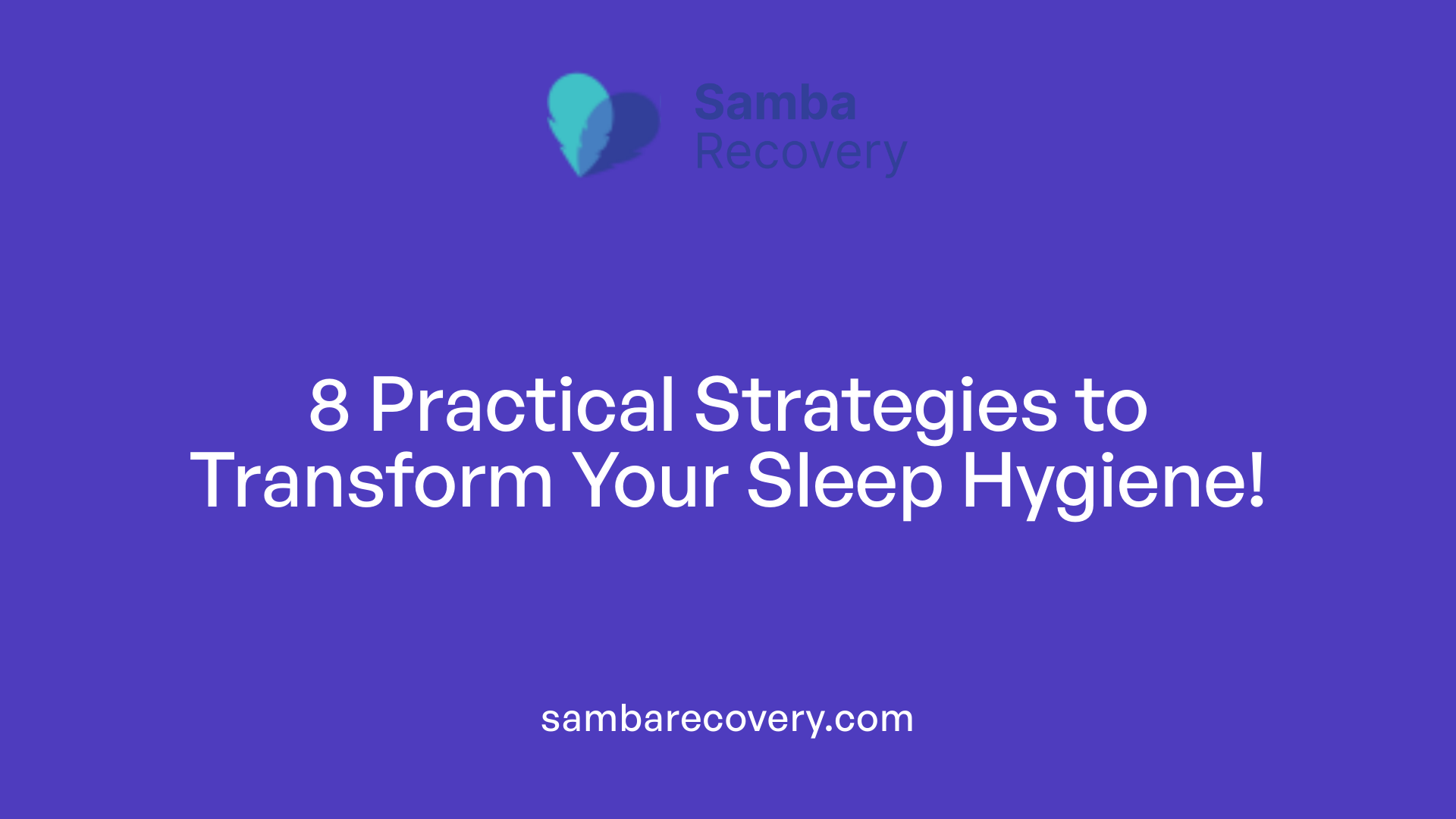
What practical strategies can improve sleep hygiene for recovery?
Addressing sleep hygiene is essential for individuals recovering from addiction. Here are some practical strategies to enhance sleep quality:
-
Establish a Consistent Sleep Schedule
Waking up at the same time each day helps regulate the body’s internal clock. Aim for no more than a one-hour difference between weekday and weekend sleep times. -
Create a Restful Sleeping Environment
Ensure your bedroom is dark, quiet, and kept at a comfortable temperature of about 17 to 19°C. Consider blackout curtains and white noise machines to minimize disturbances. -
Limit Screen Time Before Bed
Reducing exposure to screens (like TVs, phones, and tablets) well before bedtime can mitigate interruptions to melatonin production, which is crucial for sleep. -
Avoid Stimulants
Consumption of caffeine and nicotine should be minimized, particularly in the hours leading up to bedtime, to promote more restful sleep. -
Engage in Relaxing Activities
Activities such as reading a book, practicing mindfulness, or gentle stretching can help the mind and body wind down prior to sleep. -
Manage Anxiety
Establish a routine that includes a ‘worry time’ to process thoughts during the day, preventing them from interfering with sleep at night. -
Incorporate Regular Exercise
Daily physical activity can lead to improved sleep quality, but aim to finish exercising at least a few hours before bedtime to avoid overstimulation. -
Limit Naps
If napping is necessary, keep it short (10-20 minutes) and before 3 PM to avoid impacting nighttime sleep.
By implementing these strategies, individuals can significantly enhance their sleep hygiene, which is crucial for effective recovery.
Achieving Long-term Sobriety Through Quality Sleep
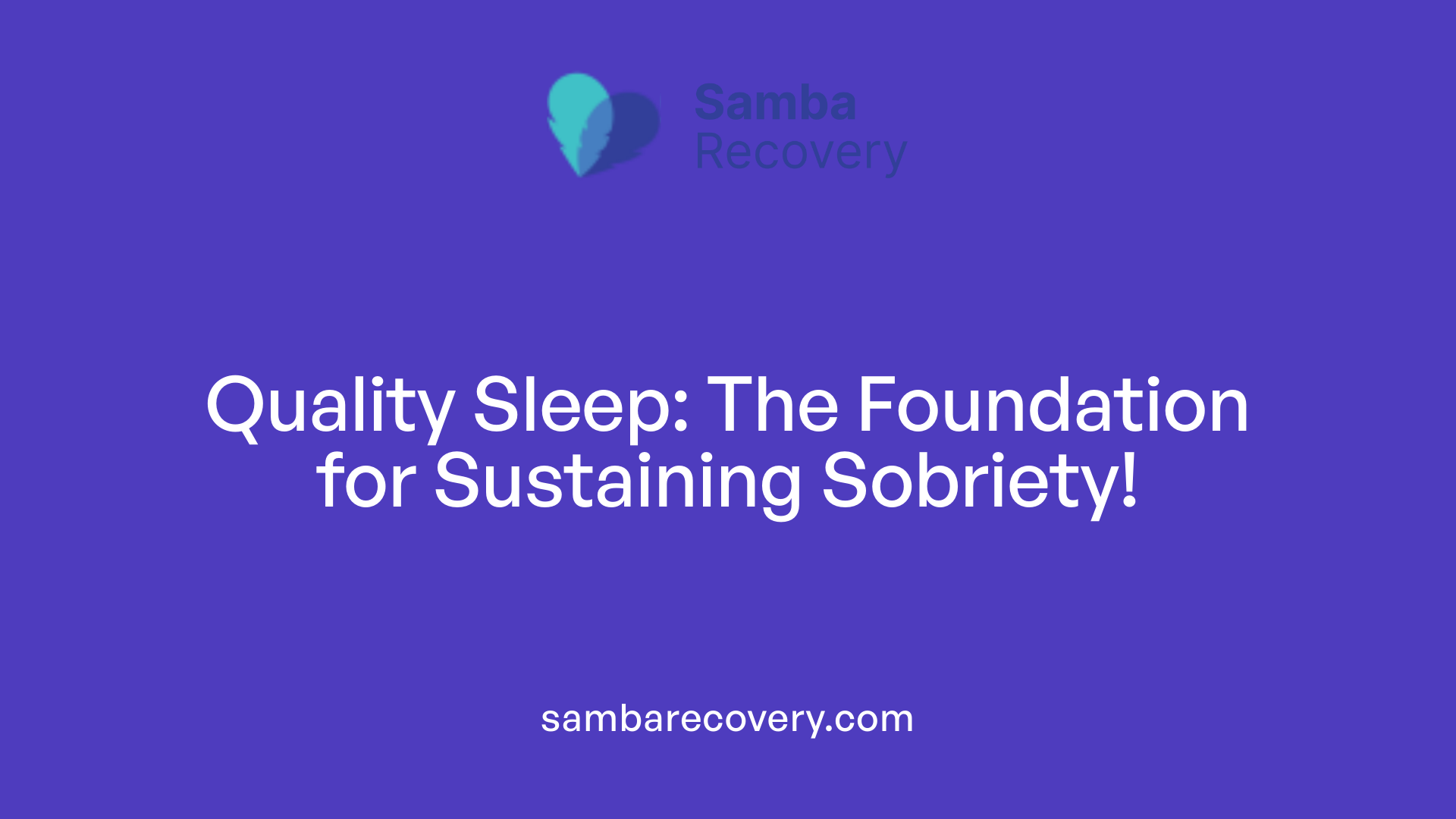
What is the significance of quality sleep in achieving long-term sobriety?
Quality sleep is crucial for achieving long-term sobriety as it supports both physical and mental health, essential for recovery. Sleep deprivation can lead to fatigue, irritability, and mood swings, increasing the risk of relapse, particularly because many recovering individuals experience persistent sleep issues. Improved sleep quality enhances cognitive function and emotional regulation, allowing individuals to manage cravings and make better decisions in their recovery journey.
Benefits of sleep for long-term recovery
Engaging in good sleep hygiene can yield significant benefits for individuals in recovery:
- Emotional Regulation: Adequate sleep helps stabilize mood and reduces anxiety, which is particularly important during the emotional turmoil often present in recovery.
- Cognitive Function: Quality rest boosts attention, decision-making, and problem-solving abilities, leading to improved participation in treatment plans.
- Craving Management: Quality sleep reduces cravings that can trigger relapse, providing a solid foundation for coping strategies.
Connection between sleep quality and sobriety
Techniques such as establishing a consistent sleep routine, creating a conducive sleeping environment, and engaging in non-pharmacological therapies, such as Cognitive Behavioral Therapy for insomnia (CBT-I), can significantly improve sleep hygiene. For instance, developing a relaxing pre-sleep routine can signal the body to unwind, making it easier to fall asleep quicker and stay asleep longer. Ultimately, prioritizing quality sleep helps individuals cope with stress and maintain a positive mood, both of which are vital for sustaining motivation and success in sobriety.
Therapeutic Approaches for Managing Sleep Issues
How do therapeutic approaches help manage sleep issues during recovery?
Therapeutic approaches, such as cognitive behavioral therapy for insomnia (CBT-I) and mindfulness techniques, are essential for managing sleep issues that frequently arise during recovery. These therapies tackle both cognitive and behavioral aspects that can disrupt sleep patterns.
CBT-I specifically focuses on altering negative thought processes and behaviors that contribute to poor sleep. It guides individuals in developing healthier sleep practices, encouraging them to establish consistent sleep schedules. Additionally, CBT-I emphasizes the creation of a sleep-friendly environment and teaches relaxation techniques that further promote restful sleep.
With studies showing that up to 80% of individuals in recovery suffer from sleep disturbances, these therapies play a significant role in enhancing overall well-being. They not only support improved sleep quality but also reduce the likelihood of relapse often connected to inadequate rest.
Mindfulness techniques provide another layer of support, helping individuals manage stress and anxiety levels, which significantly impact sleep. Practicing mindfulness before bedtime can enhance emotional regulation, making it easier to unwind and fall asleep without disruptive thoughts.
By addressing root causes of insomnia and empowering individuals with effective coping strategies, these therapeutic approaches contribute to long-lasting improvements in sleep quality and mental health, which are vital throughout the recovery journey.
Addressing Common Sleep Disorders in Recovery
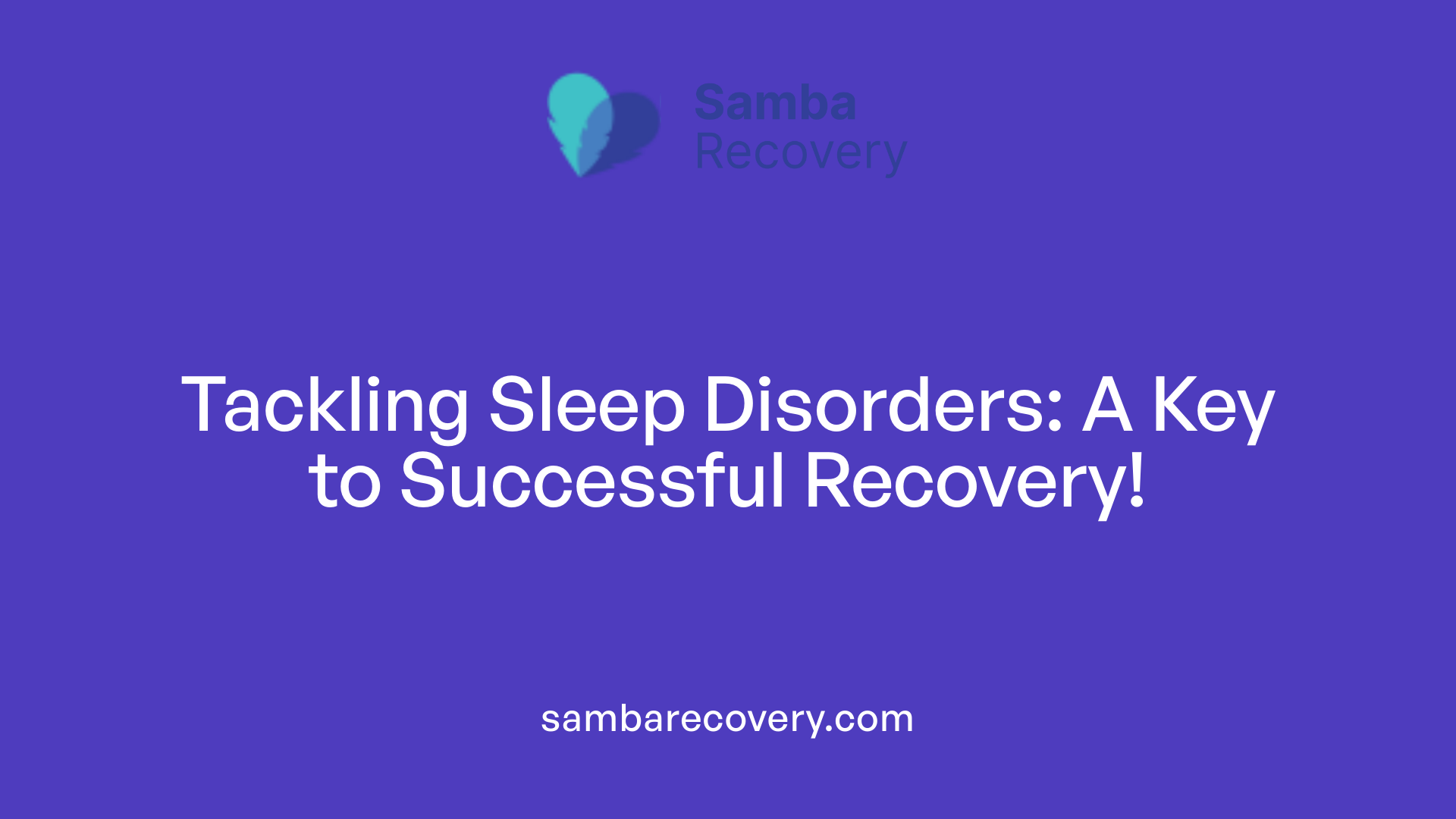
Prevalence of sleep disorders among recovering individuals
Sleep disorders are highly prevalent among individuals in recovery from substance use disorders. Studies indicate that insomnia affects 25% to 72% of those with alcohol use disorder, and individuals in early recovery experience insomnia five times more frequently than the general population. This not only indicates the need for clinical attention but also highlights how poor sleep can exacerbate cravings and increase the risk of relapse.
Treatment and management of sleep disorders
Effective management of sleep disorders in recovery often involves non-pharmacological approaches. Cognitive Behavioral Therapy for Insomnia (CBT-I) is recommended as a first-line treatment, focusing on behavioral techniques and sleep education. Additionally, establishing sleep hygiene practices—such as maintaining a consistent sleep routine, optimizing the sleep environment, and incorporating relaxation techniques—can significantly improve sleep quality and support overall recovery efforts. Regular exercise and mindfulness practices are also beneficial, aiding in emotional regulation and reducing anxiety.
| Sleep Disorder | Prevalence in Recovery | Recommended Management |
|---|---|---|
| Insomnia | 25-72% among those with AUD | CBT-I, Sleep Hygiene |
| Sleep Apnea | Common | Weight management, CPAP |
| Restless Leg Syndrome | High incidence | Leg massage, Stretching |
Promoting a Holistic Approach to Sleep Hygiene
Holistic methods for improving sleep
Incorporating holistic methods into sleep hygiene can significantly benefit individuals in recovery. These approaches include practices like mindfulness meditation, which helps reduce anxiety and promotes relaxation, essential for a good night’s sleep. Additionally, Cognitive Behavioral Therapy for Insomnia (CBT-I) is a first-line treatment strategy that focuses on restructuring thoughts and behaviors related to sleep.
Integrating sleep hygiene in recovery programs
Integrating sleep hygiene education into recovery programs is crucial. Programs can emphasize the importance of maintaining a regular sleep schedule, creating a calming bedtime routine, and fostering a conducive sleep environment. Encouraging daily exercise, managing dietary choices, and limiting caffeine can enhance overall sleep quality. Regular workshops on sleep hygiene can help raise awareness and provide recovering individuals with tools for better sleep, ultimately supporting their recovery journey.
Prioritizing Sleep for a Successful Recovery
Emphasizing the importance of sleep hygiene in addiction recovery is crucial for fostering long-term sobriety and overall well-being. By integrating practical strategies, therapeutic approaches, and holistic methods, individuals can overcome sleep disturbances, which are prevalent in recovery. Recognizing and addressing sleep issues early in the recovery process not only enhances treatment outcomes but also supports sustained sobriety. As research continues to highlight the interconnectedness of sleep, mental health, and addiction, prioritizing sleep hygiene can provide the foundation needed for a healthier, substance-free life.
References
- How Does Sleep Hygiene Impact Addiction Recovery? The …
- Tips for Good Sleep Hygiene in Recovery
- Sleep Management among Patients with Substance Use Disorders
- Practicing Sleep Hygiene in Recovery – High Focus Treatment Centers
- Sleep Hygiene and Addiction Recovery
- The Crucial Role of Sleep Hygiene in Addiction Recovery and …
- Sleep Hygiene in Recovery
- Examining the Role of Sleep in Addiction Recovery
- The Science of Sleep and Its Impact on Addiction Recovery
- Sleep Hygiene in Recovery – Kemah Palms






